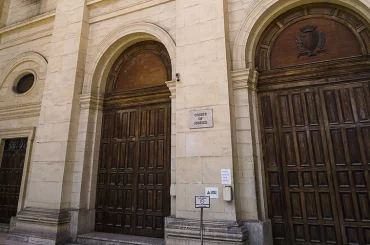The reason for Robert Abela’s political reembrace of Joseph Muscat – probably to become a candidate in the European Parliament elections – lies in Labour's electoral problem as we head towards this Spring's elections for European Parliament.
Ablea knows that large swathes of Labour voters are disgruntled, and that Labour faces the scenario at the European Parliament elections of a low turnout among Labour voters that would in turn hand over the balance of the election outcome to the PN.
By now Abela might also have discovered that Joseph Muscat remains popular with the Labour grassroots, possibly more so than Abela himself. Labour voters, particularly in the south of Malta, never warmed up to Abela in the same way they admire Muscat as a self-made man.
Many Labour voters are also convinced that Muscat is a victim of a conspiracy by a supposed PN-associated elite. Abela played up that supposed conspiracy yesterday, and went on to extend it to the court – he has now taken to blaming the court and casting doubt on the court’s impartiality in the magisterial inquiry into suspected or alleged money laundering, and in so doing he has echoed the same allegations that Muscat has been making.
Maybe Abela hopes that peddling such supposed conspiracies would appeal to the sentiment of a class struggle that would serve to mobilise Labour voters, particularly in its historical heartlands, to turn out to vote for Labour in the European Parliament elections.
Moreover, if Muscat is a candidate and Labour performs underwhelmingly, then Muscat would also be an owner of the result together with Abela. And that might save Abela from a potential challenge to his leadership of the party.
On the other hand, Abela is taking an electoral gamble because involving the courts in the rhetoric of divisiveness may alienate voters in the middle ground, including Labour voters. Such rhetoric may take a life of its own and cast a shadow over Labour that would linger beyond this June's European Parliament elections.
This is not the first time that Abela has attacked the courts whenever electorally expedient. We saw it during the resistance to a public inquiry into the death of Jean Paul Sofia. On both occasions Abela insinuated that the magistrates were motivated by an interest to damage the government politically, and he based such insinuations substantially on the fact that the magisterial inquiries took longer than the 60 days specified in the law.
It is worth remembering that the overwhelming majority of magisterial inquiries take longer than 60 days, and there is nothing new or unique in the magisterial inquiry in which Joseph Muscat is the suspected taking several years.
Two points can be made about this. On the one hand, the law has to updated because complex inquiries, especially those that involve economic crimes across borders, cannot be completed in 60 days no matter what. On the other hand, the courts are barely functioning due to shortage of staff and shortage of members of the judiciary – and it is the government that has not given the courts the resources (in terms of trained staff and members of the judiciary) to handle cases within reasonable time.
Abela should remember that what he has said about the judiciary is fraught with risks. His talk that completion of the magisterial inquiry prior to the election, after ongoing for four years, would raise suspicion that the timing may be intended to damage Labour at the polls has a chilling, intimidatory effect on the court. Such talk causes consternation among independent voters, and only works for some time even among a swathe of Labour voters. There is indeed the possibility that embroiling the judiciary in cynical, divisive electioneering may on balance even yet prove to be electorally damaging to Labour itself.





